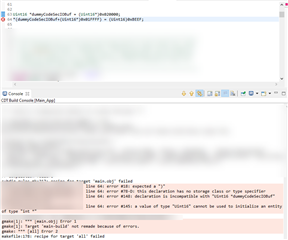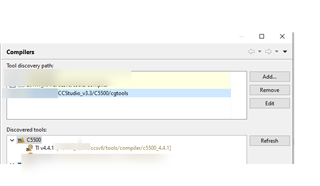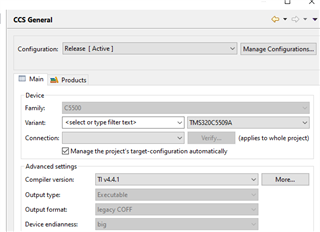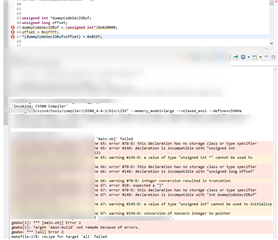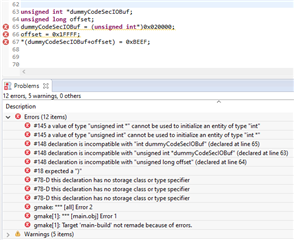Other Parts Discussed in Thread: SPRC133
Hello,
How to create a dummy section in the linker file?. I would like to create the output file without allocating the memory or filling the data in the DUMMY section of the output file ?.. With the below example I cant move FPRG above DUMMY or below CODE. The problem is with DUMMY or without DUMMY section the output file size is same.
MEMORY
{
MMR : origin = 0x000000, length = 0x0000C0
CRC : origin = 0x0000F0, length = 0x000002
SECA: origin = 0x0000F2, length = 0x000002
DUMMY : origin = 0x020000, length = 0x020000
FPRG: origin = 0x040000, length = 0x004000
CODE : origin = 0x044000, length = 0x020000
}
SECTIONS
{
.mmr : > MMR
.crc : > CRC
.seca: > SECA
.dummy : > DUMMY, type = DSECT
.fprg: > FPRG
.code :> CODE
}
Thank you,
Ramesh G




